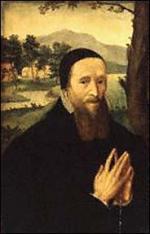|
This section contains 9,743 words (approx. 33 pages at 300 words per page) |

|
SOURCE: Shuger, Debora. “‘Society supernatural’: the imagined community of Hooker's Laws.” In Religion and Culture in Renaissance England, edited by Claire McEachern and Debora Shuger, pp. 116-42. Cambridge: Cambridge University Press, 1997.
In the following essay, Shuger discusses community-related matters explored by Hooker in his writings, including jurisdiction, authority, law, and socio-political organization.
Since the 1970s, studies of Richard Hooker's Laws of Ecclesiastical Polity have, to no one's surprise, grown suspicious of its lofty disinterestedness. Current scholarship, reacting against the hagiographic tradition established by Walton's Lives, has argued for Hooker's narrowly polemical aims as a propagandist for Whitgift's crackdown on dissent and a paid spokesman for the anti-Puritan faction in the parliamentary debates of 1593. The new Hooker is a “partisan thinker intent on window-dressing the command structure of English society,” whose work offers “a particularly compelling consecration of … [its] power structure.”1 Richard Helgerson's 1992 Forms of Nationhood provides the most...
|
This section contains 9,743 words (approx. 33 pages at 300 words per page) |

|


